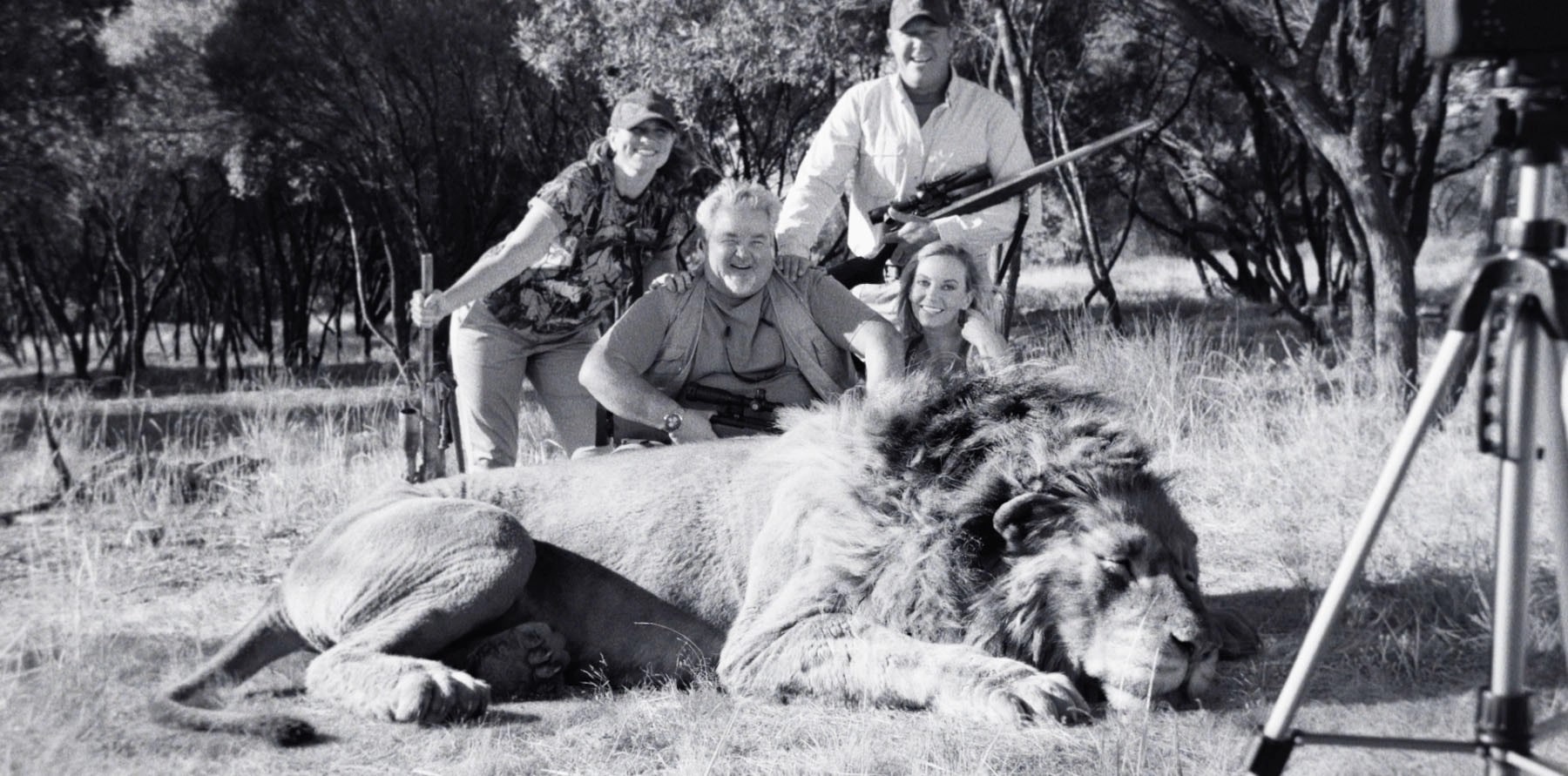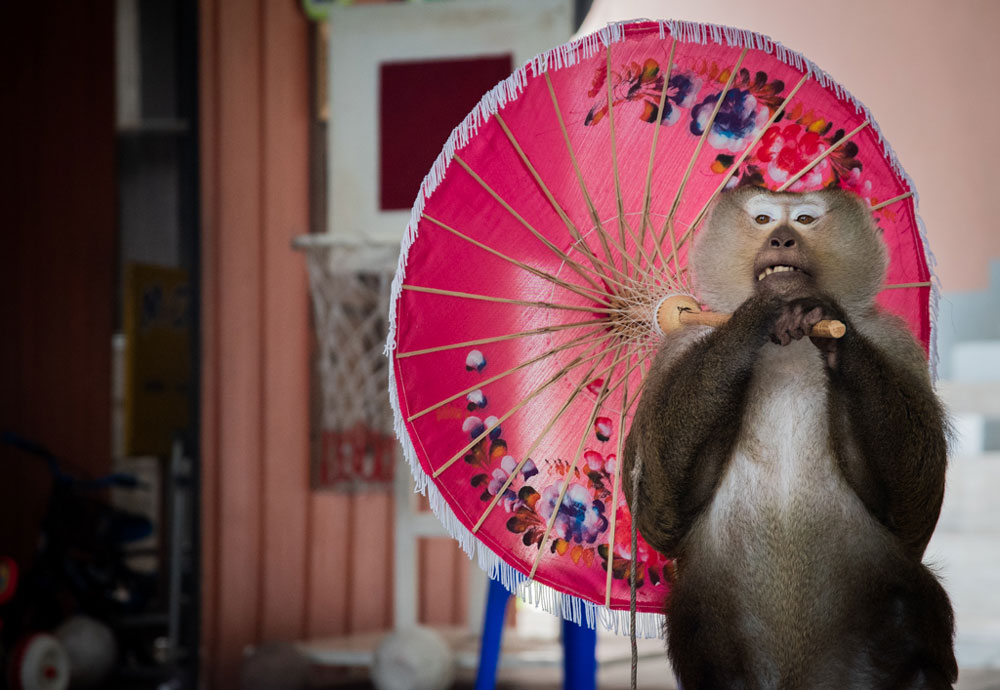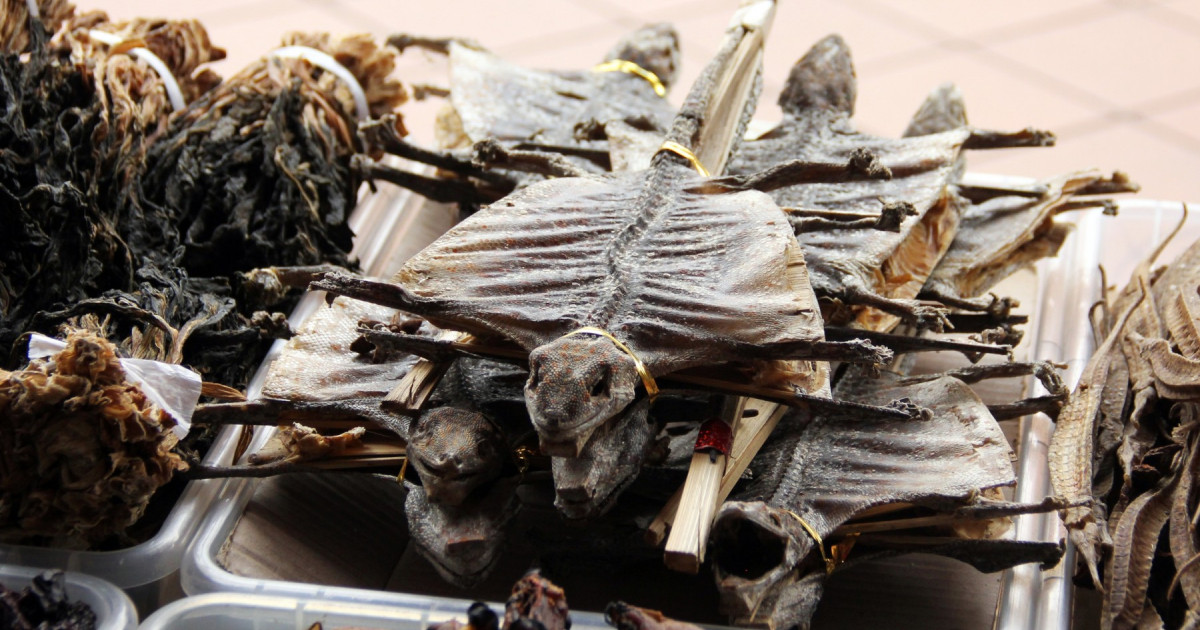A year in review
To learn more about our achievements and future plans, you can read our full 2023 Global Review.
World Animal Protection UK

About us
Find out how much income we raised this past year and how we invested the money you kindly donated to protect animals in need around the world.

To learn more about our achievements and future plans, you can read our full 2023 Global Review.
Our campaigns focus on ending the cruel exploitation of wild animals for entertainment and trade, and preserving their natural habitats.
Despite South African government promises, 8,000 to 10,000 lions are still held captive in horrendous conditions. They are exploited for lion cub petting experiences, shot in ‘canned’ trophy hunts and their body parts and bones are used in traditional Asian medicine.
To highlight their plight, we released ‘Putting a stop to cruelty: why South Africa’s commercial captive lion industry should be shut down for good’ on World Lion Day, 10 August. This shocking report outlined the suffering of the lions – detailing cases of starvation and cannibalism – the industry’s ties to international crime syndicates, and the risks of disease and injury to local people involved.
We called on the government to honour its 2021 commitment to “immediately halt the commercial exploitation of lions, and to ultimately close all captive lion facilities in South Africa”.
In November we released research from our survey revealing that travellers favour an in-bound ‘lion protection fee’ for tourists to protect lions from being killed by hunters for sport. One thousand people from countries that frequently visit South Africa, including the African continent and overseas, were involved in the survey conducted by South African and UK researchers.
To turn travellers and the tourist industry away from holiday cruelty we released our report ‘Holidays that harm’. We directly observed and exposed the exploitation of more than 1,300 wild animals, including elephants, orangutans and dolphins kept in appalling conditions across 34 venues in Bali and Lombok.
We also launched ‘The real responsible traveller’ report, with the University of Surrey, UK, urging holidaymakers to make sure before booking, that their travel company doesn’t exploit animals. It includes a step-by-step guide for travel companies on becoming wildlife-friendly, and information on drafting an effective animal welfare policy
We’re calling on our supporters to take a moment to tell the travel companies who are still selling captive wildlife entertainment that they will not book with them until new policies are put in place.
Throughout 2023, we galvanised our supporters to highlight the horrendous suffering of dolphins held captive in entertainment venues. By the year’s end, more than 120,000 people had signed our petition, launched in 2022, asking TUI Group to stop selling and promoting dolphin cruelty.
Nearly 6,000 emails were also sent to the company in protest. And in the UK, 320 independent travel agents signed an open letter to TUI UK & Ireland asking for a stop to the sales and promotions.
 Photo is by Efrem Efre via Pexels
Photo is by Efrem Efre via Pexels
Feather use in fashion inflicts suffering, mutilation and cruel slaughter on ostriches, peacocks, pheasants, and other birds. Our 2023 report – ‘Feathers are the new fur ’– produced with Collective Fashion Justice – prompted Melbourne to become the first Fashion Week worldwide to ban clothing featuring wild bird feathers. This added to their existing fur and wild animal skin ban for which we had also strongly advocated.

In December, we delivered a petition signed by more than 178,000 people calling for the release of Baloo the bear to officials from the Romanian Ministry of Environment. Baloo has been locked in a cage at a ski-resort in Romania for 23 years and endures shocking mistreatment. He has no exercise, is fed cornflakes, lemonade and alcohol, and people often poke him with sticks through the cage bars.
Our next steps involve building a legal case for his removal and transfer to the Romanian Bear Sanctuary run by our partner Asociația Milioane de Prieteni (AMP).
 Image is by Jasper Doest
Image is by Jasper Doest
During 2023 we had inspired wildlife-friendly medicine commitments from:

Factory farming is the largest source of farmed animal suffering and a significant driver of climate change. In 2023, we focused our efforts on reforming the global food system and advocating for better lives for farmed animals.
Factory farming inflicts horrendous cruelty on animals and is firmly linked with climate change. It emits 11% of the world’s greenhouse gases, strongly linking it with the increasing number of disasters, such as droughts and floods, affecting some of the world’s poorest countries. We drove home this powerful message at COP28 – in Dubai during November and December – with our new report ‘How factory farming emissions are worsening climate disasters in the global South ’ and accompanying film.
The profoundly negative effects of the meat industry on animal welfare and the environment were exposed through our 2023 investigation with Repórter Brasil. Together we firmly linked forest destruction in the Amazon and Cerrado with global giant JBS’s animal feed supply chain and the cruelty of factory farming.
JBS, one of the world’s biggest meat producers, heavily invests in factory farming and supplies brands including Aldi, Burger King, Costco, Lidl, McDonalds, Nando’s, KFC, and Tesco.
We launched a powerful documentary in Brazil to coincide with the company’s Annual General Meeting in April. It revealed illegal deforestation and wild animal suffering, violence against traditional communities, and the suffering of farm animals raised in deplorable conditions to fuel JBS profits. Our subsequent report ‘Profiting from cruelty and killing our world’, revealed an appalling chain of destructive practices by the company.
Since 2021, our research has persistently highlighted the critical links between antibiotic overuse in factory farmed animals and the escalating superbug crisis which kills around 1.6 million people annually.
Seventy five percent of the world’s antibiotics are used on factory farmed animals – mostly on those cruelly confined to factory farms to keep them alive in filthy, cramped, highly stressful conditions.
Our 2023 actions included…
Targeting the UK government and giving vital evidence used by politicians and policy makers with our UK-specific research and report: ‘Life-threatening superbugs: how factory farm pollution risks human health’. We are pressing the UK to follow the EU and ban antibiotic overuse in healthy herds as part of its antimicrobial resistance national action plan.
Championing Canada’s bill proposing a Pandemic Prevention and Preparedness Act and giving testimony to help it pass its third reading. This Act addresses critical pandemic drivers, including wildlife trade and factory farming.
Receiving an Open Philanthropy grant to document existing animal production, animal husbandry, animal welfare and antimicrobial use among small-scale farmers in Nyeri County, Kenya. We want to show how higher welfare farming reduces antimicrobial use and so encourage businesses to support it.
Total income: $58.9 million (£48.3 million)
Total expenditure: $64.1 million (£51.7 million)